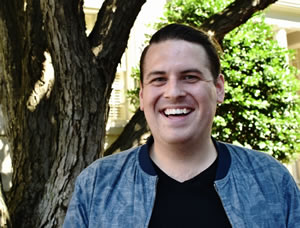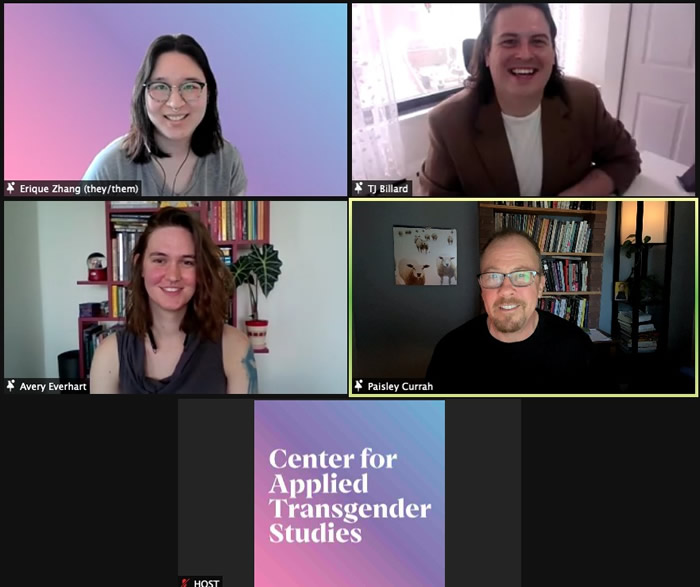
Opening a new research center during a pandemic may seem like a bad idea. But assistant professor of communication studies TJ Billard has a wildly different take on the launch of their interdisciplinary, cross-institutional Center for Applied Transgender Studies.
“The timing around everything seems to make sense, as we were coming into a new political administration in the US, and as we’ve seen transgender issues—for better or for worse, unfortunately often worse—coming to mainstream social and political conversation to a degree that has never happened before,” they say. “We also had an opportunity to take the expertise of what we do every day and orient it toward something that has impact on the real world around us.”
The center’s 30 affiliated scholars are working together to identify, analyze, and ultimately find solutions for issues facing transgender people worldwide. Billard hopes that in pursuing research as well as advocacy, the center’s work will yield public policy that is crafted by the very community most affected by it.
“Trans people are being at least symbolically accepted and affirmed, but it doesn’t actually mean that trans people are in the positions of power or are the ones representing themselves at the table,” they say. “While some advances have been good, they’re not necessarily what trans people would push for themselves.”

Billard said they and their fellow scholars found one another on a Facebook group for transgender academics and conceived the idea of launching a center when the pandemic quashed in-person activities. The geographically dispersed participants found they could collaborate more effectively online, attract outstanding attendance for Zoom events, and devote time and energy to the center that might otherwise have been spent in, among other things, commuting.
It also happened to be Billard’s first year at Northwestern, a crucial time for setting a research agenda, getting to know the campus community, and fostering on-campus partnerships—all of which were superseded by an overworked Outlook inbox.
“It’s been strange for sure, but it’s also been liberating in terms of what I’ve been able to do,” they say. “I probably would not have been looking outward and examining the different ways I can build academic community with these other trans scholars. And in doing so, I can help make Northwestern a place of significance for trans studies.”
